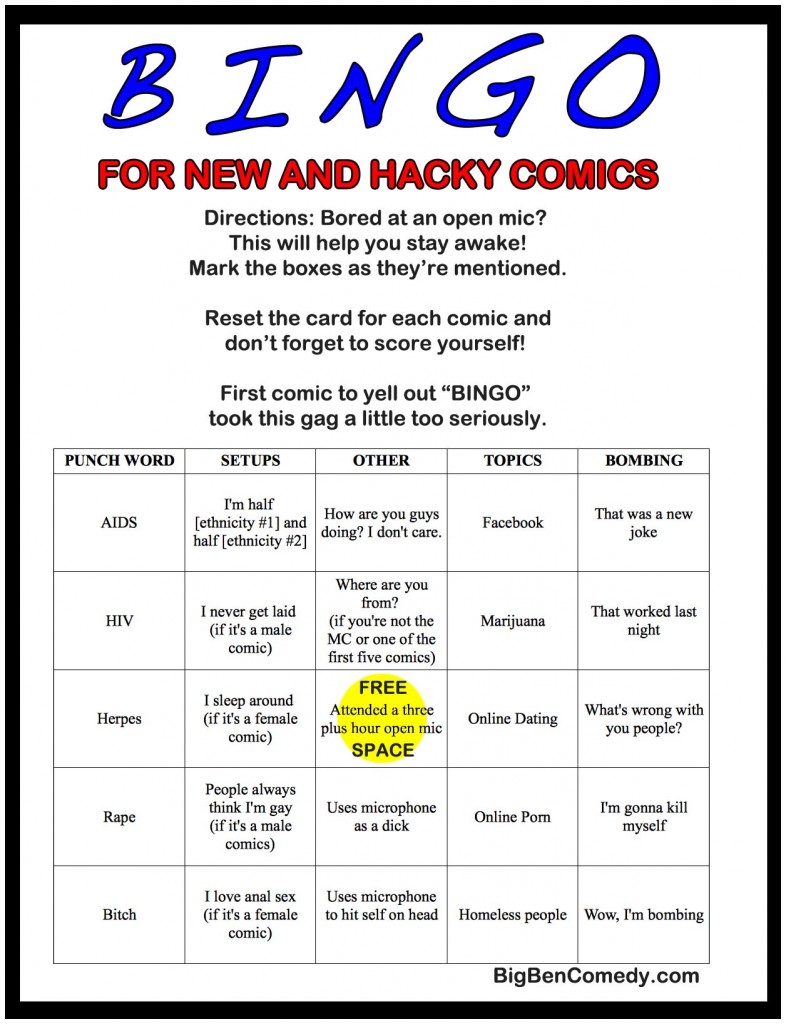Reader and aspiring comedian Andrew asks:
How do you go about writing new material? Is it just things that seem funny to you in real life, or do you sit down and try to think up funny situations, or what?
Hey Andrew,
I always have a small moleskin notebook with me (and an iPhone as a backup) so I write down anything I think, see or hear that’s funny. Sometimes this will lead to me writing a joke on the spot, sometimes it’ll just be a few key words that I later try to write into full jokes. I also try to write on trains or subways through free association. I look around until I find something interesting and start to write about it. (There’s plenty of inspiration in NYC just by looking at people or advertisements, not sure if this holds true everywhere.)
Later, I’ll rewrite my notebook jokes into a GoogleDocs file. (Your hard drive can crash, Google Docs is safer and you can access your jokes from anywhere, including an iPhone / Blackberry.) After that, I’ll either try it out on stage or IM it to a few friends and get their feedback. I’ve found that not looking at a joke for a day or two will help you be a better editor when you rewrite it. And all of my jokes need to be said out loud at least 10 times before they become funny-.
Also, after trying a joke on stage, if it gets laughs, I try to think about how to add more punchlines to the same topic. You can go setup -> punchline, set up -> punchline, setup -> punchline, or you can try to go setup -> punchline -> punchline -> punchline.
One goal in stand up is to maximize the laughs per minute. You can do this by talking really fast (which is generally a bad idea) or by having more punchlines and less setup. This is also why you’ll always hear comics say “get to the punchline quicker.” (The other goal in standup is to maximize the intensity of each laugh.)
I read that Jerry Seinfeld had a long sheet of paper with dates and “X”s on it. For every day he wrote, he’d put an X. His whole mantra is to “keep the chain going”. I’ve been trying this but with three columns: sit ups (I don’t wanna be a fat comic), writing material and performing stand up. I try to do all three daily but don’t always succeed. I keep this paper close by though, so I at least remember and have something to strive towards.
I forget who said this, but I read a quote something like “I only write when inspiration strikes. However, inspiration strikes me every day at 7am sharp.” I’m working towards getting this discipline.
Wanna try stand-up comedy yourself? I teach a Comedy Class in New York City. I also do private one-on-one comedy coaching (in-person or via Zoom).
More Stand-Up Comedy Tips:


